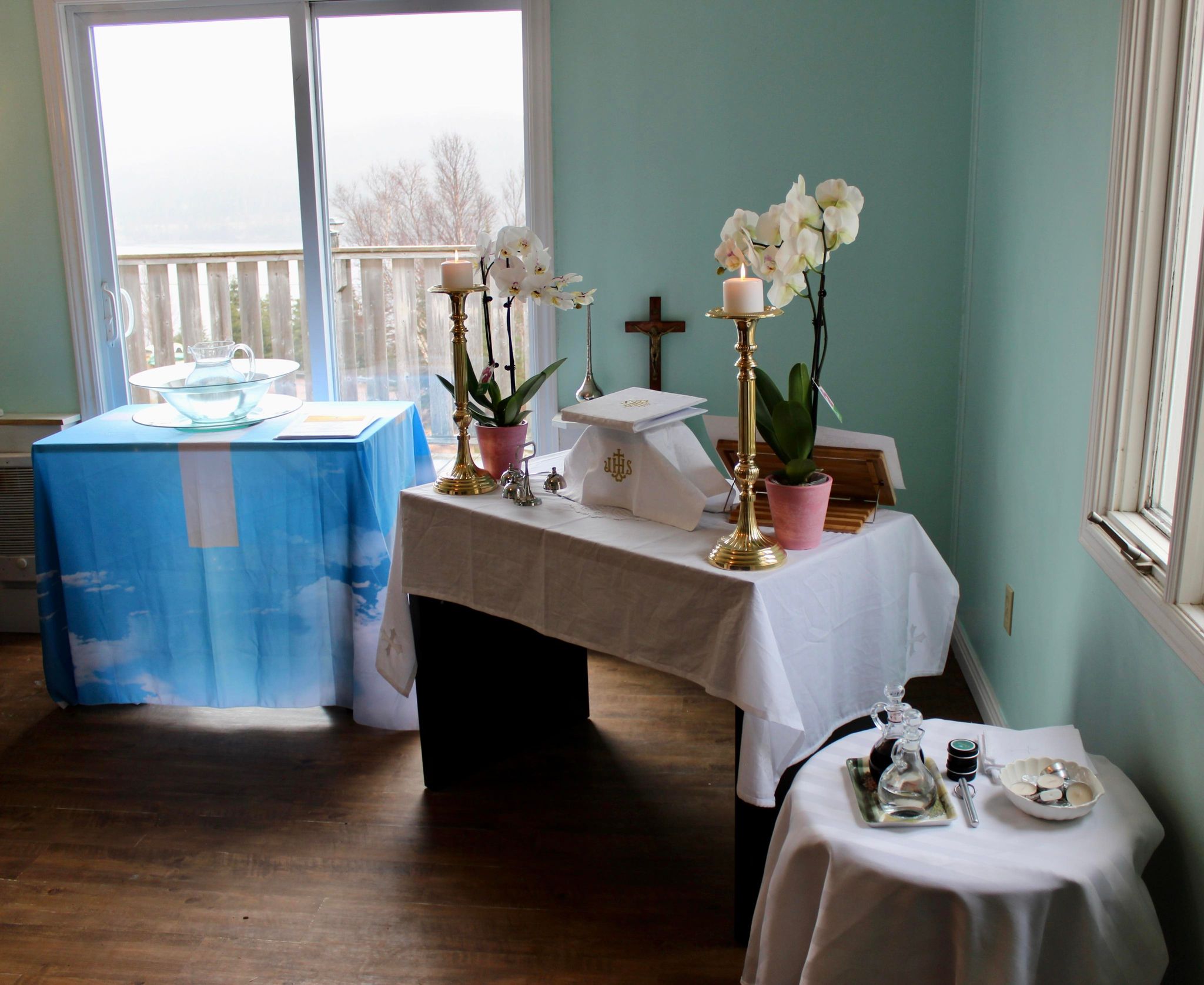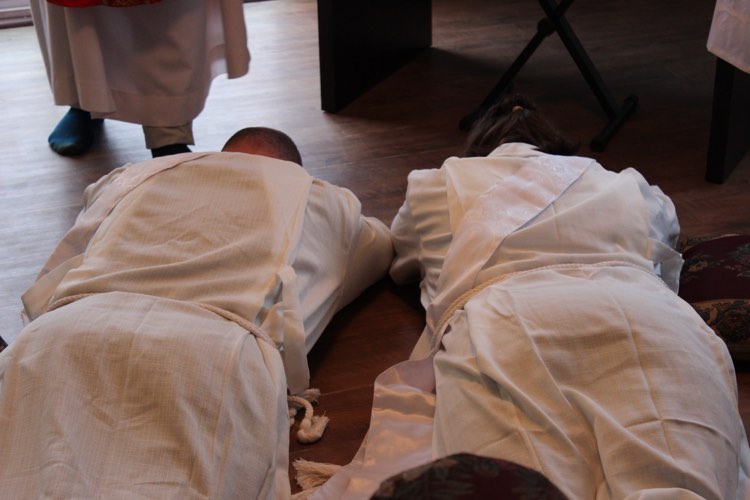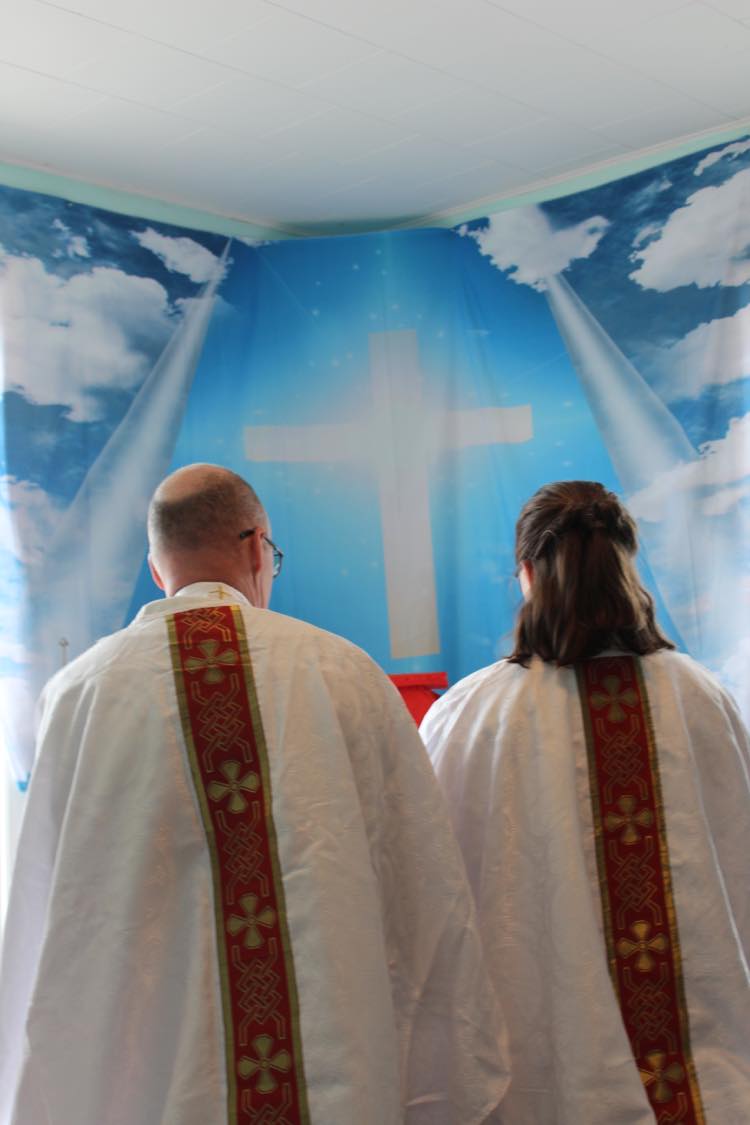- Home
- about stbrigits
- Human Resources Considerations
- Screening In Faith
Simply Catholic and Welcoming You
Screening In Faith

We Emphasize Being a House Church Yet Proper Screening Processes Are Every Bit As Crucial To Us As To Any Larger Church
Screening In Faith is an adaptation of Volunteer Canada's screening policy which is now used by many churches.
Volunteer Canada advocates for comprehensive and ongoing screening practices, emphasizing that it's an essential part of ensuring safe and meaningful volunteer engagement, not just a one-time process.
Here's a breakdown of Volunteer Canada's perspective on screening:
Key Principles
Ongoing Process
Screening is not a one-time event but a continuous process that begins when a volunteer opportunity is created and continues throughout the volunteer's involvement.
Beyond Police Checks
Screening should encompass various steps, including assessment, position assignment, recruitment, application, interview, references, police checks, orientation, training, support, and follow-up.
Focus on Safety and Protection
The primary goal of screening is to protect children, other vulnerable people, and the organization itself.
Tailored Approach
Screening policies and procedures should be tailored to the specific needs and context of each organization.
Importance of Understanding
Organizations should help staff and volunteers understand why screening is necessary and the importance of protecting vulnerable people.
Resource Availability
Volunteer Canada and volunteer centers across Canada offer training, consultation, and resources to help organizations develop and implement effective screening policies.
Volunteer Canada Resources
The Screening Handbook (2012 Edition):
This handbook provides comprehensive guidance on developing and implementing screening policies and practices.
Best Practice Guidelines for Screening Volunteers
This publication promotes a broader concept of screening and its benefits, including safety, protection, and better matching.
Volunteer Canada Website
You can find resources and information on screening, volunteer management, and other related topics on the Volunteer Canada website (volunteer.ca).
I include this information to give credit where it is due and to direct our readers to their resources which are available online directly from them.
Screening In Faith Policy

The Cross s A Symbol Of The Christian Faith Yet The Stigma Of Abuse Is A Cross We All Must Bear
The members of St. Brigit’s Community Catholic Church care deeply for the well-being of one another and for those to whom they minister. We have become more aware of the possibility of harm being done to those who are most in need of our care and compassion. It is possible that a small number of persons may take advantage of organizations that have no, or lax, screening procedures.
In the past 10 years in the Anglican Diocese of Toronto alone there have been 60 reported cases of sexual misconduct. This despite strong efforts to root out potential offenders.
These represent files opened and investigations of complaints of sexual harassment, sexual abuse of children and exploitation. Fifty percent have been investigations of complaints of lay leaders with access to children.
These figures are reflected across churches and other organizations globally. We are well past being able to fantasize let alone believe that "it would never happen with us". As organizations/churches grow, bad actors will seek to use them for malicious agendas. We must take all precautions to protect our young and otherwise vulnerable people.
To protect as far as possible those whom we serve, as well as those who serve in our parishes, we have adopted thorough, appropriate, consistent and ongoing screening measures for our volunteers and employees. The protection and safety of all, including our volunteers and employees, will guide our intentions and actions in applying these measures.
Statement of Intent
It is the intention of St. Brigit’s Community Catholic Church to ensure that, as a faith community, we fulfill our obligations to those we serve, especially the vulnerable and to minimize the risk of harm in all situations of ministry and of service, to ensure the integrity, safety and reputation of our volunteers and employees to safeguard the resources of our parishes.
Implementation
1. St. Brigit’s Community Catholic Church has mandated that all employees and volunteers of every parish are to be screened. All clerics who hold positions in the church are also to be screened.
2. All employees and volunteers, those serving at the present time and those seeking to become employees or volunteers, are to be screened.
3. All employees and volunteers are to be screened according to the procedures and instructions of this policy.
4. Standardized forms, provided by St. Brigit’s Community Catholic Church, are to be used in the implementation of a uniform screening process.
5. Pastors are to establish a screening committee in each parish. This committee will have a minimum of two persons and a maximum of five persons.
6. St. Brigit’s Community Catholic Church will establish an Office of Risk Management and appoint a Screening Coordinator.
Position Descriptions
1. A position description outlines the responsibilities and duties of the employee or volunteer as well as the screening measures to be applied.
2. The basic outline for position descriptions is to follow the same format throughout the church. Position descriptions are to be reviewed at least once a year. If there is a change in the position description before the end of the year, then revision of the position description should be made immediately.
Determining the Risk
1. All positions are to be assessed for the level of risk involved. The level of screening of the position must meet the level of risk associated with it. When there is doubt as to the level of risk, a position should be deemed to be HIGH RISK.
2. Two (2) categories will be used to assess the position based on the level of trust afforded the employee or volunteer. These are: LOW RISK and HIGH RISK. These "trust" categories correspond to the levels of risk for potential harm that could occur to participants, the vulnerable or church resources through the position. Risk levels are categorized as: low and high.
3. All ministries involving children or youth, as well as ministries that require home visits are to be categorized as HIGH RISK.
4. Volunteers who are active in more than one ministry are to be screened for the position with the higher level of risk. When a volunteer moves from a LOW RISK position to one of HIGH RISK, he or she will be screened again according to the higher level of risk.
5. Each volunteer is to complete a Volunteer Information Form.
6. For LOW RISK ministry positions, the ministry leaders or coordinators are to be responsible for the completion and collection of these forms.
7. For HIGH RISK positions, the screening committee is responsible for the completion and collection of all applicable forms.
8. All forms are to be maintained in a confidential file and updated annually.
Interviews
1. An interview is to be conducted for all volunteers in HIGH RISK positions.
2. A minimum of two persons from the screening committee shall conduct the interview. A record of the interview is to be made in writing and kept in a confidential file.
3. For positions of HIGH RISK, a final one-on-one interview with the pastor or with his delegate may be required.
Reference Checks
1. At least two (2) reference checks are to be conducted by the screening committee for all employees and volunteers in HIGH RISK positions.
2. The employee or volunteer is to sign a permission form permitting the screening committee to contact the references. Only those named as references are to be contacted.
3. The result of a reference check is to be documented and kept in a confidential file
Police Records Checks
1. A police records check is required for all volunteers in HIGH RISK positions.
2. The police records check must be original, no more than Sixty (60) days old and requested by the parish or, where applicable, by the parish or the Archdiocese.
3. A police records check is to be reviewed by the pastor and/or by the screening committee and the Police Records Check form is to be completed. The completed form is to be kept in a confidential file.
4. If the volunteer or employee obtains the police records check and decides not to present it to the screening committee, the parish/ church cannot accept this individual for a HIGH RISK position.
5. A criminal conviction does not automatically exclude an applicant from volunteering or from a paid position. That decision depends very much on the type of crime for which the conviction was received and the totality of the circumstances in which the offense occurred.
If the police records check confirms a prior conviction, or presents a cause for concern, the parish screening committee will consult with the pastor, who will in turn consult with the bishop or a cleric designated by him for the purpose.
6. A volunteer who leaves a ministry of HIGH RISK for one (1) year or longer is required to provide a new police records check.
7. Volunteers, who have participated in ministries, deemed to be HIGH RISK for a period of years, and wish to continue to do so, must obtain, or give permission for a police records check every five (five) years.
Record Keeping and Confidentiality
1. Personal information obtained either orally or in writing will be kept confidential.
2. Information gathered for the purpose of screening is to be accessible only to the volunteer or staff applicant, the pastor and the parish screening committee members. Information forms are to be kept in a secure filing system at the Office of Risk Management.
3. In situations where a doubt arises as to the suitability of a person for a parish ministry, the pastor will make the final decision. Should the pastor and/or members of the parish screening committee have serious concerns or differences of opinion about a volunteer or staff member's acceptance, or should a conflict of interest arise, the bishop or another cleric designated by him for the purpose is to be consulted to assist with the deliberative process.
Orientation and Training
1. All current and new volunteers must participate in an orientation session. The sessions are to be offered at least once a year.
2. All volunteers are to receive a copy of the Guidelines for Parish Volunteers. The screening committee is responsible for providing every volunteer or employee with a copy.
3. Volunteers and staff are to be given appropriate training to perform their duties without putting themselves or others at risk.
4. When orientation and training have been completed, the screening committee will document this on the appropriate form.
Supervision and Evaluation
1. The level of supervision is to be based on the level of risk involved in a volunteer position.
2. The screening committee in each parish will work with the ministry and group leaders or coordinators to assess the level of supervision currently in use in each ministry or group and determine what supervision will be used where none exists.
3. Evaluations are to be performed once a year for positions of HIGH RISK. Copies of the evaluation are to be filed in the volunteer or employee's file.
4. When supervision and evaluation have been completed, the screening committee will document this in the volunteer or employee's file on the appropriate form.
Participant Follow-up
1. Participant follow-up is to be a regular occurrence for HIGH RISK positions.
Recent Articles
-
Ordination, incardination and dismissal of clergy
Mar 03, 25 06:47 PM
Overview of Ordination to Holy Orders, incardination and dismissal of clergy -
Catholic Last Rites
Mar 03, 25 06:41 PM
An explanation of the Catholic Last Rites and Anointing of the Sick -
Catholic-Confession
Mar 03, 25 06:37 PM
Full breakdown of the Catholic Confession Sacrament of Reconciliation

